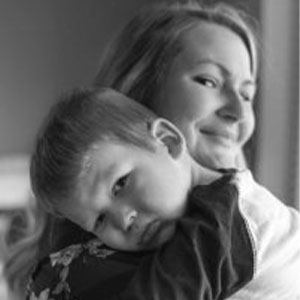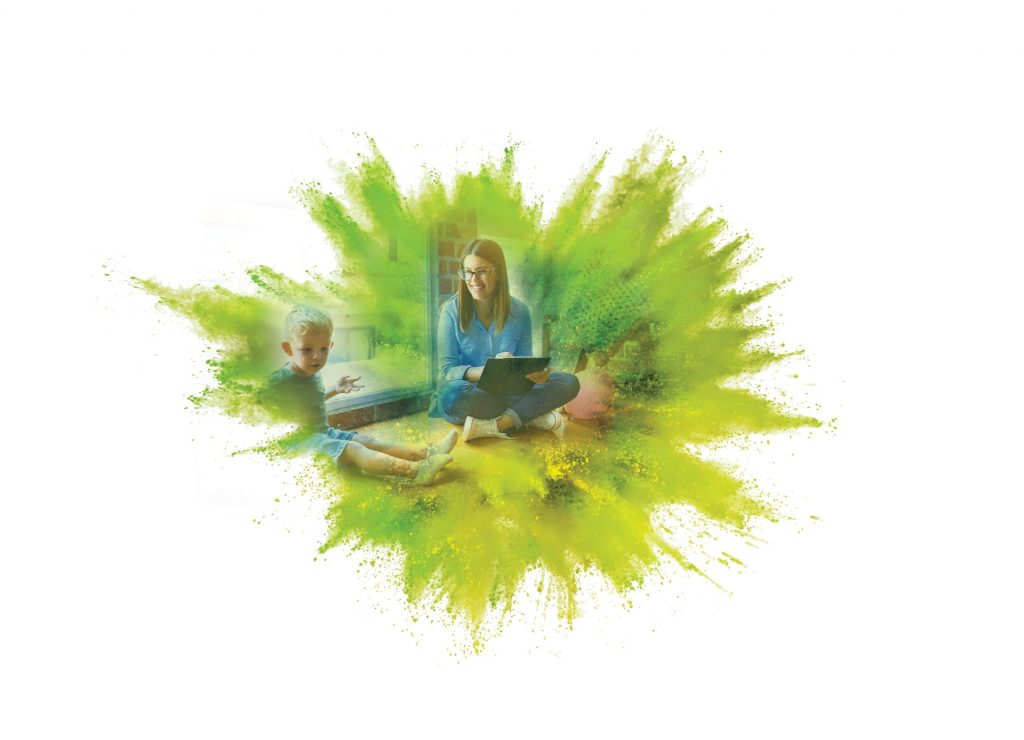
ABC’s & 123’s Don’t Really Matter Much to Me
Over the last few weeks, I’ve been sharing some of my favorite parenting practices, practices that I believe have a direct impact on positive development. In writing these blogs, I’ve been getting a lot of questions about my take on academics and young children. In a world that has growing expectations concerning what children should know, I’m more than happy to write my spin. That being said, I have to admit that my opinion on this topic stems from my grandma.
As a child, family was really important to my dad (it still is). He made a point to see his parents and to keep us connected with our aunts, uncles, and cousins. One way he kept my sister and I connected with my grandparents, who lived on a farm about an hour away, was to leave us with them for a week every summer. This was my favorite week of the year!
During the week on the farm, we would help take care of the animals (well, mostly me!) garden (again, me ) and learn to sew (mostly my sister). We got this amazing exposure to a slower pace of life and to learn about my grandparents’ take on the world.
My Grandma Virginia was the matriarch of the family and a force to be reckoned with. There was really only one opinion that mattered: hers. I loved her. Originally my grandma went to college to become a teacher but met my widowed grandpa who had two small children. Her life quickly changed when they wed. They had four more children of their own and she spent her years raising them while my grandpa worked as a traveling minister. When all her children were grown (all 6!) she went back to get her master’s in special education, which was right around the time I was born. She then went on to teach 6th grade and special education.
Learning About Education
In talking to me about children and education, there was something my grandma said to me that has always stayed with me. She told me that when she went back to college she was amazed by how many new theories had been created and how expectations had changed yet children were still just children. To her, this new world of education was based on adults wanting to “make a system better based on their own take,” versus really just following a child. She was concerned about the new level of academic work being pushed at a kindergarten level that then, of course, lead to the age of standardized testing.
Now, mind you, I was born in 1987, which was the year my grandma got her master’s. It was most likely the mid-90’s when she shared this opinion with me. But sitting here this morning, writing this to all of you, I can’t help but feel she was onto something.
I’ve now sat across the table from hundreds of parents with children who have autism and are worried that their young children are behind academically. In speaking to these parents, I have learned they are concerned with things like their children being unable to sit in a group, or solo, for a long period of time, not knowing shapes, colors or ABC’s, and not being able to read by kindergarten. I also know my mom-friends of young neurotypical children have the same concerns. These parents want to make sure their children are set up to be successful at school. This is a great goal, but, if you ask me, the academics really don’t matter in early childhood. Here’s why.
Childhood Development: More than Academics
To me, in regards to education, I have one skillset to emphasize to my children before they go to school; love to learn. That’s it. As I’ve written about before, children are naturally curious and ready to take on their world every single day. This thirst is what will drive them to learn just about anything we ask of them later in life. At an early age, forcing rote memorization of facts (colors, numbers, letters, shapes) doesn’t match the level of curiosity children have; it confines them to a small space versus the world. In doing table time work with small children, we’re teaching them to follow a rule (sit/see/do) versus teaching them to learn. Please don’t get me wrong; sitting at a table and doing work is super important as a child gets older but up until age 5 or so I really don’t see a benefit.
When a child is little I want to see them sit to eat, read books, play, and with family around 5 to 10 minutes at a time. Going potty is also a time to sit. If a child can sit through these social scenarios and understand the expectation, awesome! I really don’t expect more than that before age 5. The reason for this is children are natural movers! They learn through exploration and don’t have an attention span longer than their age. Asking a child under 5 years old to sit and “do homework” is really just an expectation of the institution versus something developmentally appropriate. Now, I know A LOT of educators might read this and not agree; that’s OK, that’s your right. I can tell you, however, that by working in a preschool with young children with autism and by watching my own children that I strongly believe in what I’m saying.
Children learn in their world. If we, as educators, parents, and therapists, begin forcing academic behavior and content before a child shows interest (between the ages of infancy to 6 years) then I do not believe we’re helping them get ahead. What I have seen as a huge benefit in development working with young children with autism and my own children is to just follow their interests. This means play, play, play or read, read, read! And if there are opportunities to teach during moments of play or reading? Go for it! It’s totally OK to ask for letters, shapes, colors and so on while playing or reading. By doing this, we’re teaching children that learning is exciting and to love to learn! There’s no pressure in this way of instruction and children learn to seek out this type of interaction. It reinforces curiosity & learning. This is what I want for my children and, more so, what I would want for a child with autism.
Encouraging Childhood Curiosity
If children are curious about adult interactions and finding new interactions within their world, the rest (like academics) will come. Really! For children with autism, learning the value of social interaction is a key component of their treatment in ABA (applied behavior analysis) therapy. What I don’t want to see in a young child with autism before the age of 4 is being brought to a table to learn and memorize information as the primary part of their therapy. I want to see them working with their therapists through play with only a small part of therapy reserved for focus and tabletop work. In my children and other neurotypical children, I don’t see any value in tabletop work before age 5 unless a child initiates it.
Children are magically curious, with an appetite to know more each and every day. What my grandma noticed when she returned to college all those years later was an increase in the expectations from institutions yet no change in the child. In her words, “we don’t need to reinvent education.” It’s been some time since my years on the farm and my grandma has since passed on but today I feel close to her and in complete agreement. Let them be little, let them be wild, let them be a little wild!
Xoxo,
Jessie


